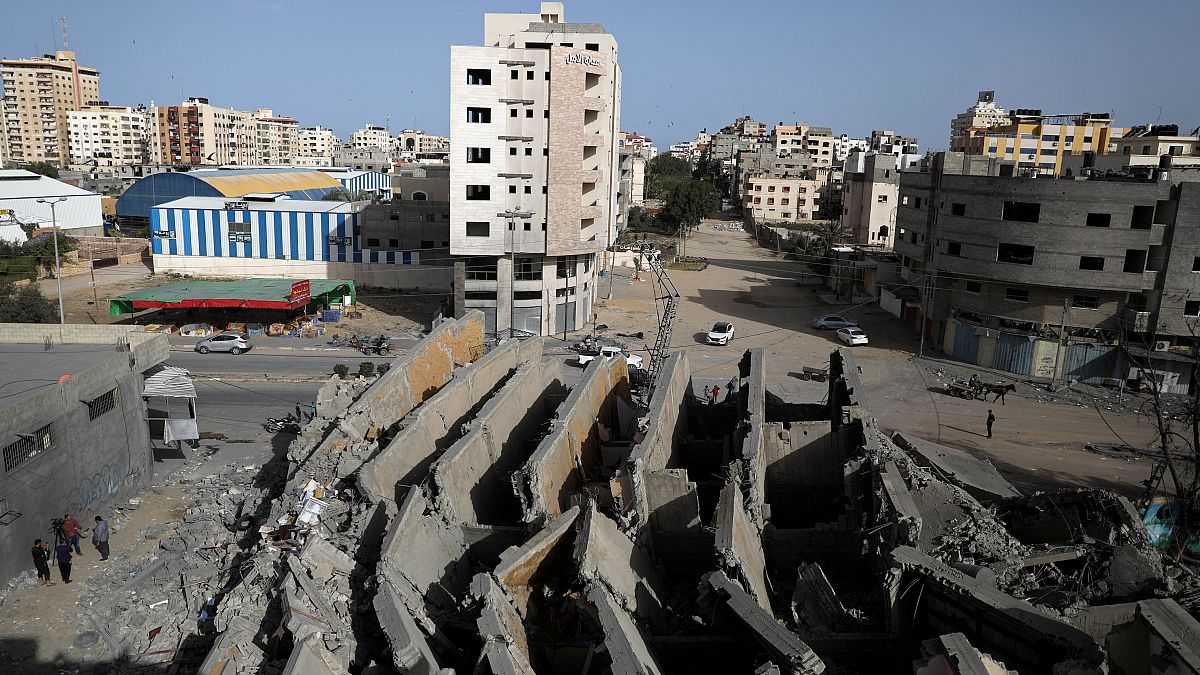As Israel prepares to host the Eurovision singing competition next week, many worry about the flare-up of violence nearby.
Only 40 kilometres separate the city of Ashdod, where an Israeli was killed by a missile on Sunday, from the Tel Aviv Expo where Eurovision 2019 will be held next week.
While cross-border fighting between Palestine and Israel broke out last weekend, killing 25 Palestinians and four Israelis, Israel is preparing to host the singing contest.
Despite the outbreak of violence, the groundwork in Tel Aviv hasn’t stopped.
Delegations from 41 countries are already there and testing the congress centre where the extravaganza will be held.
The European Broadcasting Union (EBU), which organises the contest, said on Sunday the security of the contestants was the most important thing and that it’s working with Israeli broadcaster KAN and the army to monitor the situation. The city has designated an additional 8,000 police agents to safeguard the event.
Unlasting peace
After Israel and Palestine observed a ceasefire on Monday, residents of the area are living in a fake peace. For now, the rocket blasts have stopped. Hamas leader Ismail Haniya said his group is not looking for a bigger conflict and said it was open to finding an end to hostilities. But as many have witnessed in the past this does not mean the end of violence.
“They are sending missiles 30 km to the south of Tel Aviv, aren’t you worried?” asked a German reporter from the DPA agency to the Israeli organisers of the event.
Sivan Avraha, one of the main organisers, responded that "everything was going according to plan" and "that they haven’t had to worry about the rockets so far".
Organisers are trying to keep the mood as calm as possible. But Palestinian activists are calling for the event to be cancelled given the current situation with Gaza.
A Hamas spokesman told Israel’s newspaper Haaretz that “it’s not possible to sing and have fun while we (Palestinians) suffer.”
While a spokesman for the Palestinian Islamic Jihad said on Saturday they would do everything to stop Eurovision being a success in Israel.
On the Israeli side, some residents of the area are not happy about the truce because they believe it will only last for the Eurovision period.
"Eurovision set the agenda and not us, the residents of the south," said Ofer Liberman, from Nir-am, a kibbutz — or agricultural village — near northern Gaza. He said he felt abandoned, adding: "I want the government to make Hamas too scared to launch rockets at us."
But Gilard Erdan, Israel's public security minister, warned Hamas Israel wouldn't give them any type of concession because of Eurovision. "Cultural events should not be a consideration when it comes to the strength of our retaliation."
A smaller fan group
The recent cross-border violence could deter foreign fans from flying to Israel to attend the event.
“In view of the firing of rockets into Israel from the Gaza Strip and in the event that you hear warning sirens, as an existing standard security procedure in Israel, you should immediately go to a safe room in the place where you are. If you are on the street at the time of the warning, you should go to the nearest shelter on the street,” said the Spanish foreign ministry in a statement.
For now, Israel awaits the arrival of 5,000 Eurovision fans, said Haaretz — a far smaller number compared to past competitions, like the 38,000 tourists who went to the Swedish edition in 2016 and the 60,000 that travelled to Kyiv in 2017.
Haaretz said that given the current state of affairs, no hotels have signalled any cancellations and have even reduced prices (in some cases 70%).
At the door of potential war?
“The Eurovision contest could’ve avoided the escalation,” Tareq Baconi, an analyst for International Crisis Group, told the AFP since Israel doesn’t want to compromise its international image.
“But I think a war is more likely after the last elections,” he said, adding that prime minister Benjamin Netanyahu promised to annex West Bank in his last electoral campaign.
“There are few reasons to believe that this new agreement will be different or will last more time than the previous ones,” said Hugh Lovatt, an analyst for the European Council of External Relations.
"In the absence of a more permanent political solution for Gaza, further outbreaks of violence are likely," he added.
The competition’s finale will take place on May 18.
